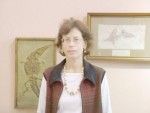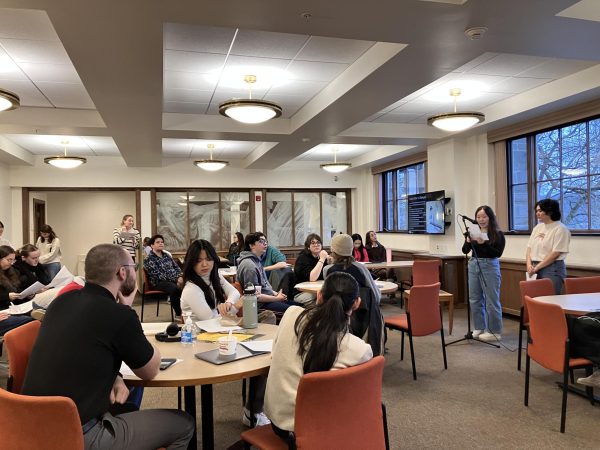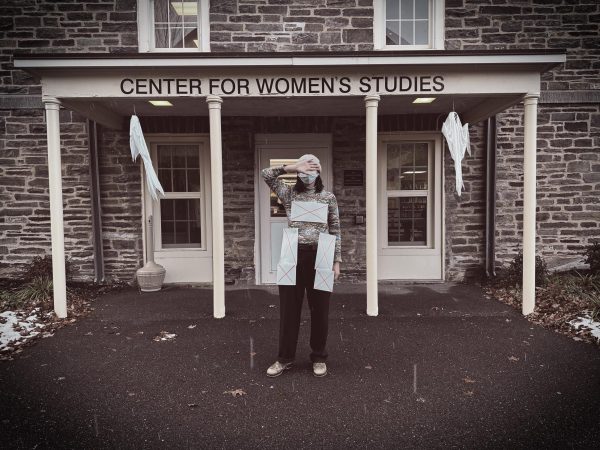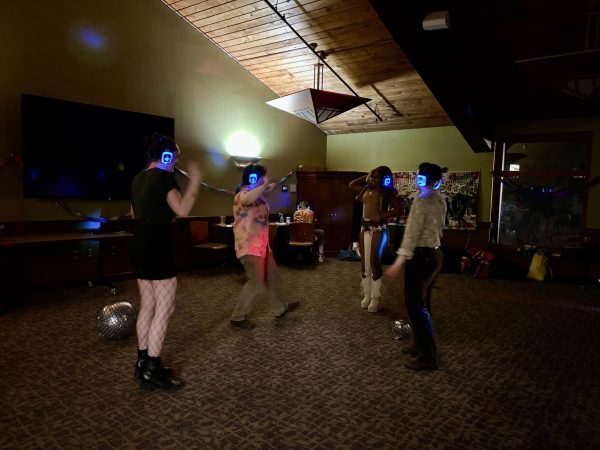Office Hours: Constance Soja

Colgate University is the proud owner of one of the world’s first whole dinosaur eggs ever discovered. The oviraptorid egg was found in 1923 in the Gobi Desert of Mongolia and is now stored in Colgate’s vault. Few people are even aware of this historic artifact that is stored on campus.
Professor of Geology Constance Soja is one of the few who cherish the artifact and use it to its full educational value. Using the prehistoric egg for student research and classroom studies, Soja is fascinated by the artifact, along with several of the world’s other geological species. Soja, who has been teaching at Colgate for 13 years, first became interested in geology during her undergraduate studies at Denison University in Ohio.
“I fell in love with the subject because of Professor Bork,” Soja said. “He became my mentor, my ‘geology guide’. He made every aspect of geology interesting.”
After completing her undergraduate degree at Dennison, Soja earned her PhD in Geology from the University of Oregon. After graduation, Soja took a temporary teaching position at Smith College and spent two years teaching at Harvard and Ratcliff Colleges. Soja arrived at Colgate in 1992. Soja teaches two classes this semester. One is a first-year seminar (FSEM) called The Sixth Extinction.
“First-years are exploring evidence for the major extinctions,” she said.”It’s one of the best FSEMs I’ve taught. It’s phenomenal. I try to teach FSEMs as often as possible. I’m so pleased with the energy and enthusiasm[first-years] bring.”
The other class Soja teaches is Evolution: Dinosaurs to Darwin.
“I love to teach this class because it’s for all the people who loved dinosaurs as a child,” Soja said. “It’s fun and rewarding to show how science and our past knowledge evolves as science progresses.”
Soja has also led students to study the oviraptorid egg stored on campus.
“The focus area for the students is how to develop a way to preserve the egg,” Soja said. “Students love seeing this fabulous specimen and [the study] been tremendously exciting to work on with Colgate students.”
Deeply passionate and enthusiastic about the subject matter of the courses, Soja makes it a point to develop well-rounded skills in her students. “In all of my classes, I try to emphasize not just learning the subject, but to write well, do research, articulate, etc.,” Soja explained.
Although Soja loves the classroom environment, she also believes that a lot can be learned through out-of-classroom experiences. Soja encourages students to take advantage of Colgate’s study abroad program. She will be traveling with the Manchester study group in 2005. Soja recently participated in a sabbatical, an opportunity for veteran Colgate professors to travel around the world while pursuing their research. Last year, Soja traveled to Japan, Mongolia and Siberia to attend the International Reef Conference and further her research on different types of reefs. Soja was thankful for this opportunity.
“It’s sometimes hard to carve out time for research and substantial writing during the school year,” Soja said. “[Colgate faculty members] are fortunate to have sabbaticals.”
Despite Soja’s travelsacross the globe, she enjoyed her return to Colgate.
“It was nice to be back in class,” Soja said.
Soja is also a very active member of the Colgate community. Participating in such activities as the Academic Affairs Board, Soja works to improve the academic policies on campus.
“We set the calendar for each year.” Soja said. “We’re starting to look at the swim test requirement and fractional credit. A few years ago, I was a part of the committee that brought the Honor Code [to Colgate].”
During the rest of her time at Colgate, Soja wants to continue what all of the professors in the Geology department have always done.
“[I love] working with students inside and outside of the classroom, expanding upon the strong foundation and preparing students for their careers in the future,” she said.




